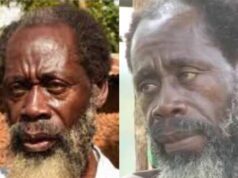Leaders and top government officials are due to meet in Berlin on Sunday to discuss a solution to Libya’s complex civil war. As expectations build, politicians spoke out about their hopes for the summit.
Heads of state and lawmakers from Russia, Algeria, Turkey, Egypt, the United Arab Emirates, France, Italy, Britain, China and the US gathered in Berlin before a key summit to discuss the future of Libya kicks off on Sunday.
Prime Minister Fayez al-Sarraj, head of Libya’s UN-recognized Government of National Accord (GNA) and Khalifa Haftar, commander of the self-styled Libyan National Army were invited to the conference, but their attendance remains unconfirmed.
As anticipation builds ahead of the conference, politicians from these countries and host nation Germany spoke out on Saturday, voicing expectations and clarifying positions.
Host nation Germany’s foreign minister, Heiko Maas, told the German Bild newspaper, “The conference can be the first step to peace for Libya.”
He also said the conference was necessary to “make sure Libya doesn’t become a second Syria.”
Following a telephone conversation between Germany’s Chancellor Angela Merkel and Abu Dhabi’s Crown Prince Sheikh Mohammed bin Zayed Al Nahyan on the eve of the talks, Steffen Seibert, the German government’s spokesperson, reiterated Germany’s stance that military intervention was not the way to solve the war. He added that the chancellor and crown prince were unified on this point.
“Peace and stability in Libya must be achieved via negotiation,” said Seibert. “From the viewpoint of both leaders, the end of foreign interference in Libya’s internal affairs is a necessary precondition for this,” he added.
Sarraj called for international “protection troops” if Haftar keeps up his offensive.
“Such a protection force must operate under the auspices of the United Nations. Experts will have to advise who should participate, such as the EU or the African Union or the Arab League”, he told Die Welt newspaper on Sunday.
Sarraj went on to criticize the European Union, saying it had not been proactive enough on Libya.
“Unfortunately, the role of the EU so far has been very modest… even though some EU countries have a special relationship with Libya, we are neighbors and have many interests in common,” he said.
Ghassan Salame, the UN’s special envoy to Libya, said on Saturday he had presented a security plan that foresees the withdrawal of all foreign fighters, regardless of nationality. In an interview with UK broadcaster BBC, he said he was optimistic about negotiations and that a political solution to the conflict was best for all involved in the conflict.
“Most of the national interests of all these countries, especially big [commercial] contracts and oil contracts, even geopolitical demands, can be accommodated by a peaceful and prosperous Libya, much better than a divided and war-torn country,” he added.
Turkey’s President Recep Tayyip Erdogan vocally backed the GNA in an interview published on US-based Politico on Saturday, warning that Libya’s “legitimate” government could not be allowed to fail and reiterating that Turkey’s troops would remain in Libya until the al-Sarraj government’s position was secure.
He called on European nations to “show the world that it is a relevant actor in the international arena” saying “terrorist organizations such as ISIS and Al-Qaeda, which suffered a military defeat in Syria and Iraq, will find a fertile ground to get back on their feet.”
“To leave Libya at the mercy of a warlord would be a mistake of historic proportions,” Erdogan said, referring to Haftar.
Turkish Foreign Minister Mevlut Cavusoglu hit out at Greece for hosting Haftar ahead of the peace talks via Twitter, saying this would “sabotage” any efforts for peace. Greece has not been invited to the talks.
The US secretary of state, Mike Pompeo, will represent Washington at the summit but expectations from the talks were “moderate,” said a senior US State Department official traveling with Pompeo.
The official also made a comparison with the Syrian war, which is made up of many different factions as he said, “I think it’s so complex and the heels are so far dug in that I would have moderate expectations as we go into this.”
Earlier the US State Department said that Pompeo would support truce efforts.





























